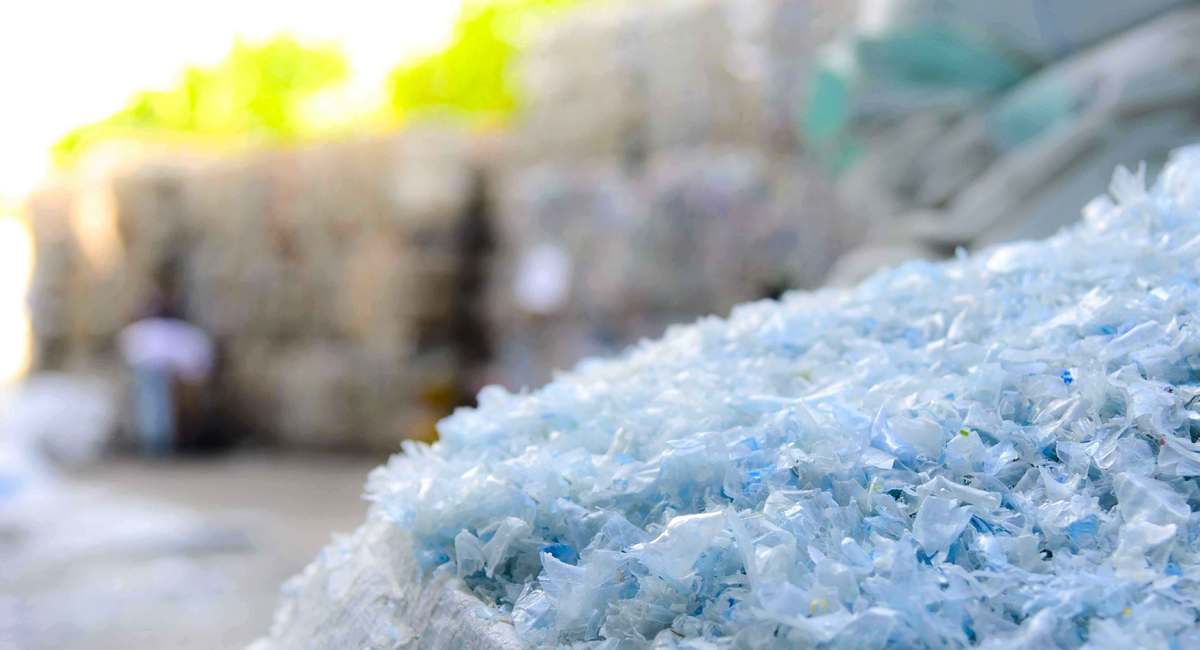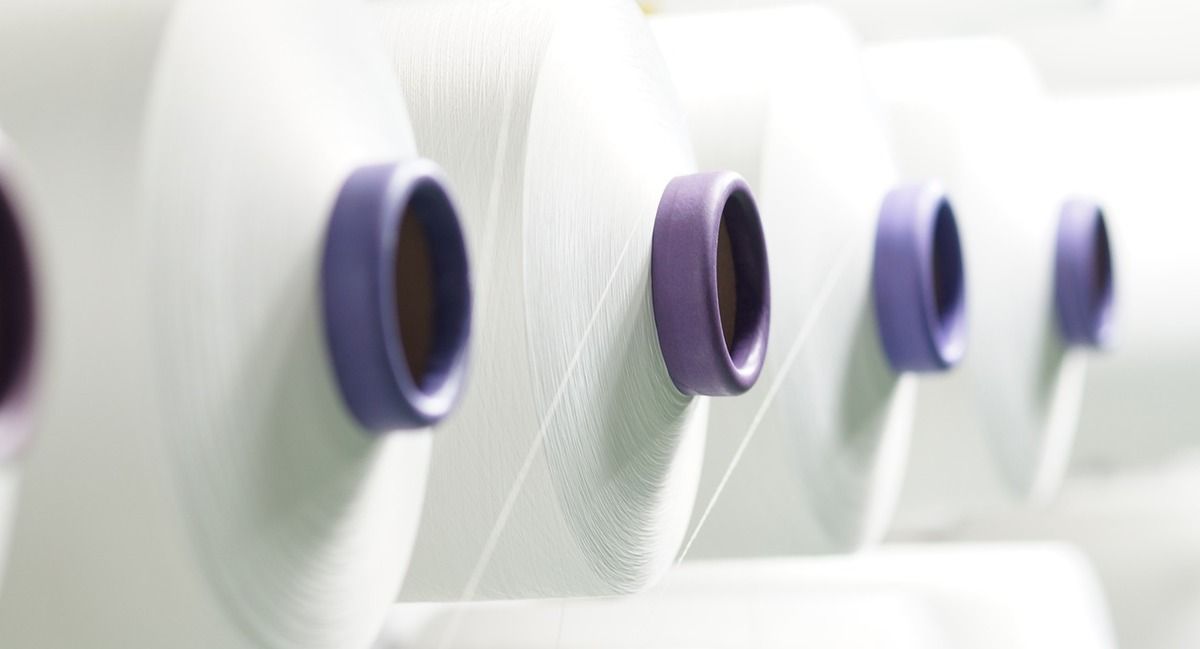What is recycled polyester?
Recycled polyester (PET) is a material derived from the recycling of plastic bottles, used polyester clothing, or textile production offcuts, which is transformed into yarn and then fabric. It has the same technical and aesthetic properties as polyester. Recycled polyester fabric is often used for swimwear, underwear and sportswear.
Non-recycled polyester, on the other hand, is a synthetic chemical fiber derived from petroleum. This material is polluting and unsustainable, as it depletes natural resources and takes a long time to degrade in the environment. Unfortunately, 70 of the world's garments are made from polyester. It is sometimes difficult to recognize this fiber visually or by touch, so if you want to be a responsible consumer, you need to be vigilant when making your purchases.
So, recycled PET or recycled polyester is an alternative because it has less environmental impact than conventional polyester. Recycling extends its useful life, avoiding waste and plastic pollution. Recycled polyester is therefore more in line with eco-responsible fashion.

How is recycled polyester obtained?
Polyester can be recycled in a variety of ways, from plastic bottles and waste, to used clothing and offcuts from textile production.
The recycling and manufacturing process adapts to the type of material recovered. The mechanical recycling method is the most popular and has the least ecological impact. There are several stages involved:
- Collection: PET plastic bottles are first collected from the sea or from packaging containers.
- Sorting: bottles are sorted by color, automatically or manually. Labels and caps are removed. Bottles are sorted into 7 different types, only 2 of which are post-consumer recyclable (PET and HDPE).
- Crushing: bottles are crushed into small flakes, then granulated.
- Washing: a cleaning and decontamination process follows using water and steam.
- Drying: drying of the pellets
- Melting: the pellets are melted to generate a yarn
- Weaving: the recycled polyester textile fibers are woven to form a fabric, sometimes blended with fabrics such as organic cotton or tencel. The yarn is dyed and then woven.
- Making up: the recycled garment is made up using the fabric previously obtained.
The mechanical process uses no chemicals apart from the detergents needed to clean the raw material. However, it does produce a less resistant polyester fiber, with a lifespan that weakens each time it is heated. So it's common for it to be blended with other, more resistant fabrics (organic cotton, tencel).

Is recycled polyester compatible with ethical, responsible fashion?
The benefits of recycled polyester
- Recycled polyester gives a second life to plastic waste, a solution that reduces the impact on the environment and oceans.
- During production, the use of recycled polyester fiber saves energy: it uses 59 'less energy than virgin polyester (but still more than cotton, hemp and wool). It also consumes less water and emits less CO2.
The disadvantages of recycled polyester
- Environmental: Each washing machine cycle can release up to 700,000 plastic fibers into the environment. So all polyester garments, whether new or recycled, contribute to microplastic pollution.
- Recycled polyester is not endlessly recycled. Recycled polyester is less resistant and loses quality as it goes through processing cycles. When mixed with other textile fibers, it is not recyclable at all.
- Social: depending on the country, the conditions for collecting and recycling PET are not always clear. Some countries have their own plastic recycling chains (Norway, Germany, etc.), while others export their plastics to countries where labor costs are derisory, working conditions are sometimes difficult and sorting is done manually, which is not very virtuous.
How can we take action?
Consuming better requires consuming less, as the textile industry is often very energy-intensive, on the other hand, solutions are available to you:
- You can buy second-hand clothing
- Stick to buying products made from recycled polyester fibers only for purchases of technical, sports products that don't exist in sustainable natural materials.
- Buy eco-responsible brands and products made from more sustainable raw materials (linen, organic cotton,...)
- Opt for upcycled polyester, possessing a lower environmental impact than recycled polyester because the transformation step is skipped.
How to care for your recycled polyester garments
There are several techniques for caring for your recycled polyester garments. For example, when washing use an anti-microplastic wash bag to protect biodiversity and the oceans. Avoid dry-cleaning and using bleach.
Discover our favorites in women's recycled polyester
Discover our favorites in men's recycled polyester





